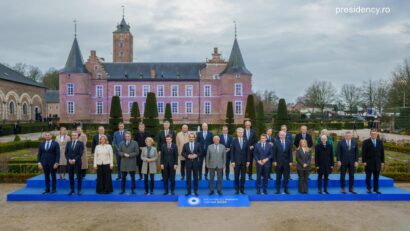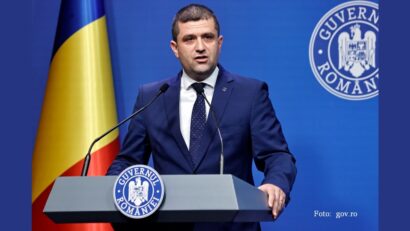Will the NRRP be extended?
The European Parliament proposes that the Commission extend the Recovery and Resilience Facility

Ştefan Stoica, 19.06.2025, 14:00
On Wednesday, the European Parliament adopted a resolution that includes a proposal to extend the financing of the Recovery and Resilience Facility (RRF) by 18 months to allow for the completion of mature projects. These are projects that could not be completed by August 31 next year, when financing through the National Recovery and Resilience Plan (NRRP) will be discontinued. The resolution refers to the report on the implementation of the Mechanism, drafted by Romanian MEPs Siegfried Mureşan and Victor Negrescu, and highlights its stabilizing effect during a period of significant economic uncertainty in Europe.
Members of the European Parliament note that the RRF has prevented the fragmentation of the EU internal market and promoted recovery. The resolution calls for specific investments in EU defense, education, and skills, and more cross-border and multinational measures, including in high-speed rail transport. The MEPs insist on accelerating investment in social protection and the integration of vulnerable groups. The EU legislature also encourages Member States to amend their national investment plans using REPowerEU to boost the Union’s energy autonomy.
In the resolution, the MEPs express concern that the short timeframe for implementing outstanding RRF funding poses challenges for the completion of key reforms, large-scale investments, and innovative projects, as well as for the 70% of milestones and targets that have not yet been achieved. MEPs reiterate the need for a robust audit and monitoring mechanism for RRF spending to prevent misuse, double funding, and duplication with other EU programs. They call for clearer links between milestones, targets, and the actual implementation of projects, and urge the Commission to take into account the recommendations of the European Court of Auditors for any future performance-based instruments similar to the RRF, particularly in the context of a more targeted multiannual financial framework.
Victor Negrescu stated that he requested an easy-to-use transfer mechanism through which money could be transferred from the NRRP to other financing mechanisms, such as the cohesion policy or the future fund dedicated to competitiveness. Siegfried Mureşan pointed out that the document voted on by MEPs also proposes the development of several cross-border projects between European countries. The European Parliament’s proposal will go to the European Commission, which, if it accepts it, will amend the current regulation on the functioning of the Recovery and Resilience Facility, and this amendment must be approved by MEPs and the Council of the European Union. As far as Romania is concerned, it has a backlog of approximately 80% in terms of reforms under the National Recovery and Resilience Plan. (MI)






























